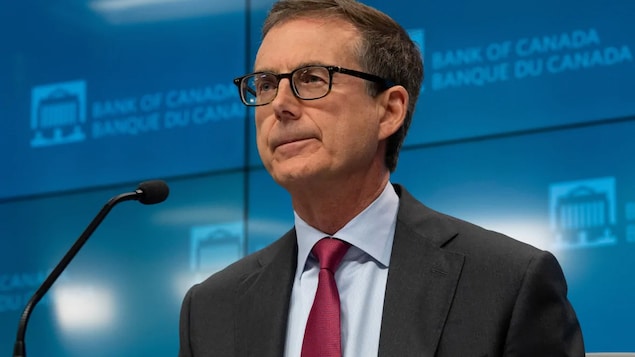In its most recent Financial System Review, the Bank of Canada noted that many households have taken out large mortgages relative to their income, further limiting their flexibility to cope with a financial shock such as job loss. .
The central bank notes that total household debt has increased by 4% since the start of the pandemic, and that it has risen sharply since the middle of last year, as the housing market grew stronger. in addition active.
According to the Bank of Canada, this boom may help the economy rebound in the short term, but it could also lead to a possible collapse if households had to cut spending because of another factor slowing the economy.
The bank’s latest review of the risks to the country’s financial system also highlights concerns about too hasty withdrawing aid to businesses to counter the impact of the pandemic.
The central bank is worried, among other things, about the future viability of companies when government support ends, as several uncertainties persist about what life and economic activity will look like after the pandemic, she explained.
As for banks and insurance companies, the Bank of Canada considers cybersecurity to be one of their top three concerns.
“Disturbing” figures
Still, the housing market and high levels of household debt play a key role in the report released Thursday by the bank.
Government assistance and central bank action to lower interest rates during the pandemic have helped put a financial floor for households and businesses, many of which fared better than expected. during this economic crisis.
However, the report continues, market activity and some troubling mortgage numbers are reminiscent of 2016, just before stress tests were imposed on mortgage applications to ensure that buyers will be able to manage their payments in the event of a rate hike.
Widespread increase in house prices
House prices are up 23% nationally from a year ago, the central bank said in its report.
The Canadian Real Estate Association (CREA) reported earlier this week that the average price of a home sold in Canada in April was just under $ 696,000.
The recent surge in prices was more widespread among cities than it was five years ago, when the situation was mostly confined to the larger areas of Toronto and Vancouver, the central bank continued. The Greater Toronto Area, Hamilton and Montreal areas are now overheating, she said, and Ottawa is on the cusp of joining them.
With house prices rising and the supply of available housing lags, some homeowners may be tempted to buy now for fear that they will not be able to afford to do so in the future.
More vulnerable households
But the bank’s report points out that some households are taking too big a bite out of taking out new mortgages, making them more vulnerable to rising interest rates when their loan renews.
A federal banking regulator is considering tightening the criteria for uninsured mortgages, and agencies are calling on Justin Trudeau’s Liberal government to do something similar for insured mortgages.
The federal budget tabled last month proposed a 1% tax for non-resident foreign owners on properties deemed vacant. The central bank clarified that the measure would likely limit speculative demand in the housing market
.
Finance Minister Chrystia Freeland met with a group of private sector economists on Wednesday. A report of the meeting provided by Ms. Freeland’s office indicates that she asked about the housing market and affordability issues.
–


